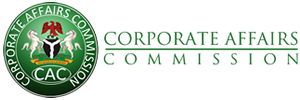,
Welcome Address By Prof. Adeyeye C. M
Director General NAFDAC
International Narcotics Control Board & Precursors Report 2018
NAFDAC Head Quarters Abuja, FCT.
6Th March, 2019
PROTOCOL
It is my pleasure to welcome you all to the launch and dissemination of the 2018 Annual Report of the International Narcotics Control Board (INCB) and Precursors Report. Narcotic drugs, psychotropic substances and precursors are controlled within the framework of the three international drug control conventions and are scheduled based on medical utility and potential for abuse. The policy thrust of NAFDAC is to ensure availability of controlled medicines for licit medical use while preventing diversion to illicit use and abuse.
This is why we have enhanced surveillance and monitoring to secure and strengthen the supply chain in addition to the following control measures:
- Issuance of permit to import to companies with registered products and satisfactory distribution records taking into account the country’s allocation by the International Narcotics Control Board (INCB).
- Issuance of permit to clear from the entry ports and warehouse inspection to ensure satisfactory storage of consignments and inventory control.
- Estimation survey of national needs of Tramadol and other prescription medicines in 2017 to guide allocations from the INCB for medical and scientific purposes and prevent stockpiling.
- Development of The National Policy on Controlled Medicines in collaboration with the Federal Ministry of Health to support the local manufacture of selected narcotic medicines in order to reduce the cross-border trafficking of controlled medicines to fill supply gaps.
- E-Permit Issuance – The Agency has commenced the electronic issuance and processing of Permits and Authorisations to promote efficiency, data integrity and provide a single window for the verification of information provided for the importation and clearance of the regulated products through the Customs Single Window for Trade.
Although tangible progress has been achieved in ensuring availability of narcotics and psychotropic substances for medical and scientific purposes including the relief of pain and suffering. Nonetheless drug abuse continues to present challenges to public health and national security. The Drug Use Survey in Nigeria 2018, pointed out a considerable level of drug abuse in Nigeria. The past year prevalence of any drug use was estimated at 14.4% or 14.3 million people; compared to the 2016 global annual prevalence of 5.6% amongst adult population. This clearly indicates a real and serious threat to public health.
The products of major concern include Cannabis and the non-medical use of Tramadol and Codeine amongst other prescription pharmaceuticals, including the sleeping pill, Flunitrazepam.
Distinguished Ladies and Gentlemen, permit me to kindly inform you that because we are deeply concerned about the scourge of drug abuse in the country, the Agency went into collaboration with the Young Pharmacists Group of the Pharmaceutical Society of Nigeria on a nationwide project titled, “NAFDAC –Youths Against Drug Abuse (YADA)”. The NAFDAC-YADA Project is a comprehensive and coordinated intervention programme with focus on secondary school students and is designed to reduce the prevalence of drug abuse amongst secondary school students by at least 50% in the first phase. The national flag off took place in Kano on the 6th December 2018, followed by stakeholders meetings in each of the pilot states in January/February this year.
The NAFDAC-YADA project is aimed at building capacity of students and their teachers towards resisting drug use and is currently being piloted in 7 States in Nigeria namely; LAGOS, OSUN, KANO, KWARA, DELTA, ANAMBRA, ADAMAWA (Yola Metropolis). The Project targets 1000 students and 100 Guardians per school, Nine (9) Schools per State and Six (6) States and 3000 in Yola with an estimated reach of 57,000 students and 5,700 Guardians within 12 months. The schools are evenly distributed within each senatorial district. School children are the most vulnerable group and the project will improve the systematic collection of reliable and comparable data on drug use and epidemiology to formulate effective drug use prevention strategies.
NAFDAC is a member of the Presidential Advisory Committee on the elimination of Drug Abuse (PACEDA). The committee was inaugurated by the President and the Commander-in- Chief of the Federal Republic of Nigeria to examine the roles and responsibilities of all agencies involved in drug control in Nigeria and to recommend sustainable interventions to the Federal Government for immediate implementation. This clearly demonstrates commitment to fighting the menace of drug abuse at the highest political level and will certainly promote inter-agency cooperation, coordination and collaboration between enforcement and regulatory agencies (Customs, NDLEA and NAFDAC) and strengthen weak institutional links in the control chain.
Drug traffickers and unscrupulous manufacturers who divert precursors usually target the weak institutional links in the control chain, hence the need for improved information sharing among drug control and enforcement agencies for effective preventive interventions. The abuse of prescription medicines is a serious burden for the individuals affected, their families and the community. There are also significant costs to society, including loss of productivity, security challenges, crime and lawlessness. An effective drug use prevention mechanism contributes significantly to the positive engagement of children, youth and adults with their families, schools, work places and communities. It is a shared and common responsibility requiring synergy of efforts between regulatory agencies and law enforcement authorities.
In conclusion, I want to use this opportunity to thank UNODC for the assistance and support to the country in the fight against illicit drug production, trafficking and use, and in curbing related organized crime. We also appreciate the support to NAFDAC towards enhanced regulatory control of narcotics and psychotropic substances.
Once again, you are all welcome to the launch of the 2018 International Narcotics Control Boards (INCB) Annual Report and Precursors Report 2018.
Thank you.
Professor Moji Christianah Adeyeye
Director-General
NAFDAC






